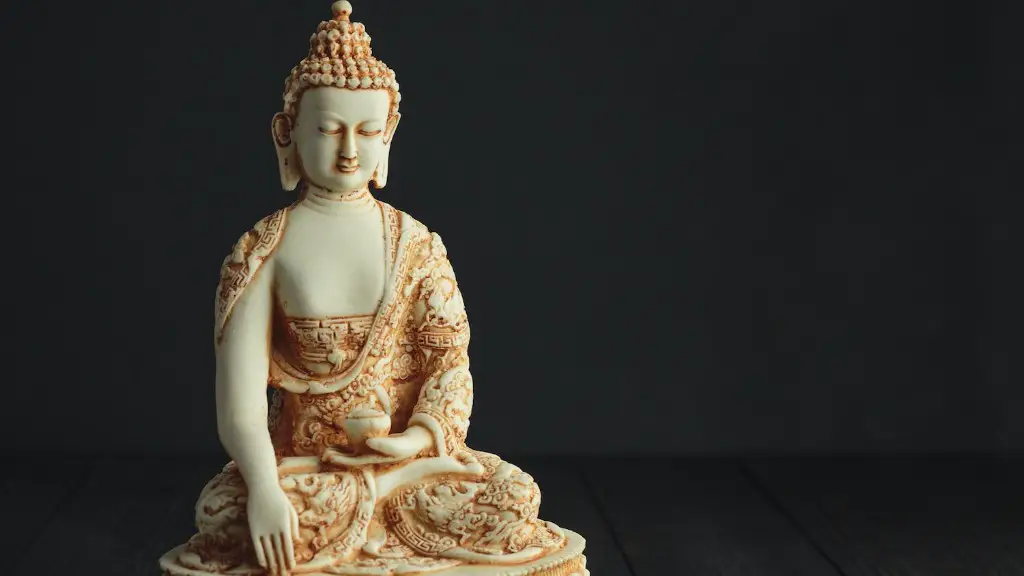Overview Of Hinduism
Hinduism is one of the world’s oldest and most complex religious traditions. It has a long history, and has been shaped by the culture and beliefs of many different countries and regions. Hinduism is based on Vedic scriptures and has its own unique philosophical beliefs, texts and practices. Hinduism includes a range of beliefs, from polytheism to monotheism, and its practices include pilgrimage, worship, festivals and rituals.
Hinduism Scriptures And Texts
One of the main religious texts of Hinduism is the Vedas, which are the oldest of the Hindu scriptures. The Vedas consist of four collections of sacred hymns, prayers and hymns of praise to the gods. The Vedas also include descriptions of rituals, philosophy and cosmology. Other important scriptures of Hinduism are the Upanishads, the Bhagavad Gita, the Itihasas, the Puranas and the Mahabharata.
The Upanishads are philosophical works that explore the nature of Brahman, the ultimate reality, and the relationship between Brahman and the individual soul. The Bhagavad Gita is an ancient Hindu text that tells the story of Arjuna, a prince who is confronted with a difficult dilemma concerning his duty to fight in a war. The Bhagavad Gita contains many philosophical teachings about the nature of reality, the individual soul and the path of spiritual growth.
The Itihasas are composed of two epics: the Ramayana and the Mahabharata. The Ramayana tells the story of the beloved King Rama and his journey to rescue his beloved wife Sita. The Mahabharata is an ancient Indian epic which contains the Bhagavad Gita, and tells the story of a great war between the Pandavas and the Kauravas.Both epics are central to Indian culture and provide moral and spiritual guidance.
The Puranas are collections of myths, legends, stories and religious instructions. They tell stories about the god Vishnu and his various incarnations, as well as of Shiva and Devi, two other central gods of Hinduism. The Mahabharata is also a part of the Puranas and it contains the Bhagavad Gita.
The Three Main Texts Of Hinduism
The three main texts or scriptures of Hinduism are the Vedas, the Upanishads and the Bhagavad Gita. These three scriptures are essential to the practice of Hinduism, as they provide the foundation for its teachings and beliefs. The Vedas are the oldest and most authoritative of the scriptures, and the Upanishads and the Bhagavad Gita are often seen as commentaries on the Vedas.
The Vedas are composed of four collections of hymns and prayers to the gods. They are believed to have been composed during the Vedic period, between 1500 and 500 BCE. The Vedas are the source of much of Hindu philosophy, and they contain the earliest references to some of the most important concepts in Hinduism such as karma, reincarnation and samsara.
The Upanishads are philosophical works that were composed between 1000 BCE and 500 BCE. They are believed to be commentaries on the Vedas, or treatises on the nature of Brahman, the ultimate reality. The Upanishads explore the relationship between the individual soul and Brahman and are an essential source of Hindu philosophy.
The Bhagavad Gita is one of the most popular Hindu scriptures and it is often seen as an extension of the Upanishads. It is a long poem that is set in the frame of a great war between the Pandavas and the Kauravas. The Bhagavad Gita contains the teachings of the god Krishna and it provides moral and spiritual guidance to its readers.
Other Important Texts Of Hinduism
Apart from the Vedas, the Upanishads and the Bhagavad Gita, there are many other important texts and scriptures of Hinduism. These include the Itihasas, such as the Ramayana and the Mahabharata; the Puranas, which are collections of myths, legends and religious instructions; and the Smritis, which are collections of legal texts.
The Itihasas are composed of epics that tell the stories of divine figures such as Rama and Krishna. These epics provide moral and spiritual guidance to Hindus. The Puranas are collections of myths, legends and religious instructions that tell the stories of the gods Vishnu and Shiva. The Smritis are collections of legal texts that provide regulations and codes of conduct for Hindus.
Significance Of Hindu Scriptures
The scriptures of Hinduism play an important role in Hindu life and culture. They provide guidance and spiritual support to Hindus, and they provide an anchor for Hindu beliefs and practices. The scriptures of Hinduism offer insight into the nature of Brahman and the individual soul, and they provide moral and spiritual guidance for Hindus.
Hindu scriptures are divided into two broad categories: the Sruti, or revealed scriptures that were heard from the gods, and the Smritis, or remembered scriptures composed by great sages. The Sruti includes the Vedas and the Upanishads, and the Smritis includes the Itihasas, the Puranas and the Smritis. These scriptures provide the foundation for many Hindu beliefs and practices, and provide guidance and spiritual support to Hinduism.
Conclusion
The religious texts of Hinduism are essential to understanding the beliefs and practices of Hinduism. The three main scriptures of Hinduism are the Vedas, the Upanishads and the Bhagavad Gita. These scriptures provide guidance and spiritual support to Hindus, and they provide an anchor for Hindu beliefs and practices. Other important religious texts of Hinduism include the Itihasas, the Puranas and the Smritis. Together, they provide an insight into the nature of Brahman, the individual soul and the path of spiritual growth.
